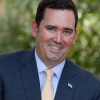The director of Planned Parenthood in Colorado said yesterday her organization will “fight like hell” against plans by Republicans, announced by U.S. House Speaker Paul Ryan (R-WI), to de-fund Planned Parenthood.
“Defunding Planned Parenthood is bad for the people of Colorado, New Mexico, Southern Nevada and Wyoming, and would result in a self-inflicted public health crisis,” said Vicki Cowart, President of Planned Parenthood of the Rocky Mountains, in a statement.
“Women and men will not let politicians play games with their health care,” she said. “We will work alongside other Planned Parenthood affiliates and our coalition partners across the country to fight like hell against this.”
To try to stop the Republicans de-funding efforts, which are part of the bill to repeal Obamacare, Planned Parenthood has launched a campaign called #IStandWithPlannedParenthood. It includes events across the country, a petition, political action, and other activities.
Planned Parenthood funding has long been a target of Republicans, who are upset that the organization offers abortion services, even though federal funds cannot be used by law to provide abortion.
U.S. Rep. Mike Coffman, for example, has voted six times to defund the organization over the years. But probably due to the fact that a large majority of women have a favorable view of Planned Parenthood, Coffman has also tried to market himself as a friend of Planned Parenthood, even presenting the organizations logo in a campaign ad.
But with Republicans about to control Congress and the White House, political observers say Planned Parenthood is at serious risk of losing some $400 million in federal funds, mostly from Medicaid, the healthcare program for the poor. At least one Republican Senator, Susan Collins of Maine, has objected to Planned Parenthood defunding in the past.
Losing federal funds could force Planned Parenthood nationally to turn away hundreds of thousands of low-income men and women, who rely on the organization’s clinics for basic health services like cancer screenings and birth control, according to Planned Parenthood.
In many parts of the country, particularly in rural areas, it would be difficult, if not impossible, for some Planned Parenthood patients to get health care elsewhere, resulting in serious health impacts, according to Planned Parenthood officials.
For example, in Texas, defunding Planned Parenthood would result in, among other things, a 27 percent increase in births among women who use injectable contraception, according to one study.
No one’s evaluated the full impact in Colorado if Planned Parenthood lost federal funding, but Planned Parenthood officials have said cuts would leave about 80,000 low-income people or more statewide in need of a new clinic.
At the Arvada clinic, for example, about 1000 patients would likely be turned away. In Aurora, over 2,000 could be forced to find healthcare elsewhere.
Even if they could theoretically access another clinic, Planned Parenthood patients may not be able to get to it, due to transportation problems, which, as a practical matter, frequently determine whether low-income people get health care at all.
Without Planned Parenthood, wait lists could also lengthen at clinics for low-income people.
Another issue is the preferences of patients. Some women, in the midst of domestic disputes or facing cultural or social complications, seek out Planned Parenthood because the organization takes special care to respect women’s privacy and to be sensitive to the medical as well as social needs of patients, according to Planned Parenthood supporters.
ProgressNow has announced a rally against the Obamacare repeal, which would include the Planned Parenthood de-funding measure, at Sen. Cory Gardner’s (R-CO) office in Denver Tuesday, Jan. 10, at noon.



